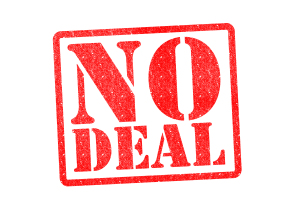Forecasting is important to our business, we spend a lot of time (often too much) on forecasts. But too often, we get forecasting wrong. Some observations:
We strive for forecast accuracy, but we will never be perfectly accurate. Even the dictionary calls it a prediction or an estimate. Yet we waste a lot of time trying to achieve levels of accuracy that are unreasonable.
The forecast is a prediction of revenue/orders we expect to get in a period of time. Managers and others in the business are anxious to know where we will be in terms of expected revenue or orders.
The forecast is really about a deal, a specific opportunity. Too often, we focus on a certain total dollar value for the forecast. “We need to hit $ 100M this quarter…..” But the business needs more specificity, the business needs to know, “What are people buying?” Too often, sales people focus on the total revenue or orders that will be generated. But the business needs to know much more. The business needs to know, “What are people buying?” If you provide a product, manufacturing needs to know what parts to order and products that need to be built. If you develop services, the services organization needs to know what skills/resources will be required. If you sell software/SaaS offerings, customer experience needs to prepare to onboard customers in the right ways.
We get this part of the forecast wrong, too often, in sales. We focus on the number and not the deals. If we forecast selling $ 100M of product line A, yet in the end get $ 100M orders of product line B, we’ve failed our company. Even though we have hit the number, we have absolutely failed.
The forecast is less about what we think and more about the customer need to buy. Ironically, when we forecast, we talk about what we think will happen or what we need to make happen. We’ve all been part of conversations like, “We need another $ 10M, what can you make happen?” Or those forecast meetings where we say, “Tell me what you need, I’ll make it happen.” We know these things seldom happen, but we’ve gotten management off our backs or given them the number they wanted.
Forecasts become more accurate if we use “customer verified forecasts.” We need to know answers to, “When does the customer need to have a solution in place? What happens if they don’t have it in place at that time? Does the customer have a sense of urgency around meeting that date?” But if we are managing our deal strategies correctly, we should already know this and be aligned with the customer in helping them achieve these goals.
Yet, 90% of forecast meetings I participate in never pose these questions. Instead we rely on the wishful thinking of sales people trying to keep managers happy.
Forecasting will never be totally accurate, even customer verified forecasts. But we can make them more accurate and more useful.
Business & Finance Articles on Business 2 Community
(35)




